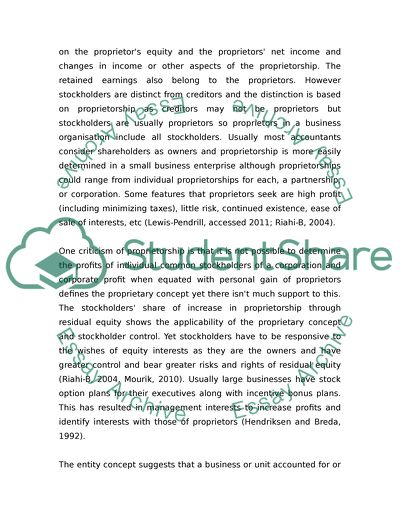Cite this document
(“The Proprietary versus the Entity Theory Essay Example | Topics and Well Written Essays - 2000 words”, n.d.)
Retrieved from https://studentshare.org/finance-accounting/1437299-the-proprietary-vs-the-entity-theory-how-has-your
Retrieved from https://studentshare.org/finance-accounting/1437299-the-proprietary-vs-the-entity-theory-how-has-your
(The Proprietary Versus the Entity Theory Essay Example | Topics and Well Written Essays - 2000 Words)
https://studentshare.org/finance-accounting/1437299-the-proprietary-vs-the-entity-theory-how-has-your.
https://studentshare.org/finance-accounting/1437299-the-proprietary-vs-the-entity-theory-how-has-your.
“The Proprietary Versus the Entity Theory Essay Example | Topics and Well Written Essays - 2000 Words”, n.d. https://studentshare.org/finance-accounting/1437299-the-proprietary-vs-the-entity-theory-how-has-your.


